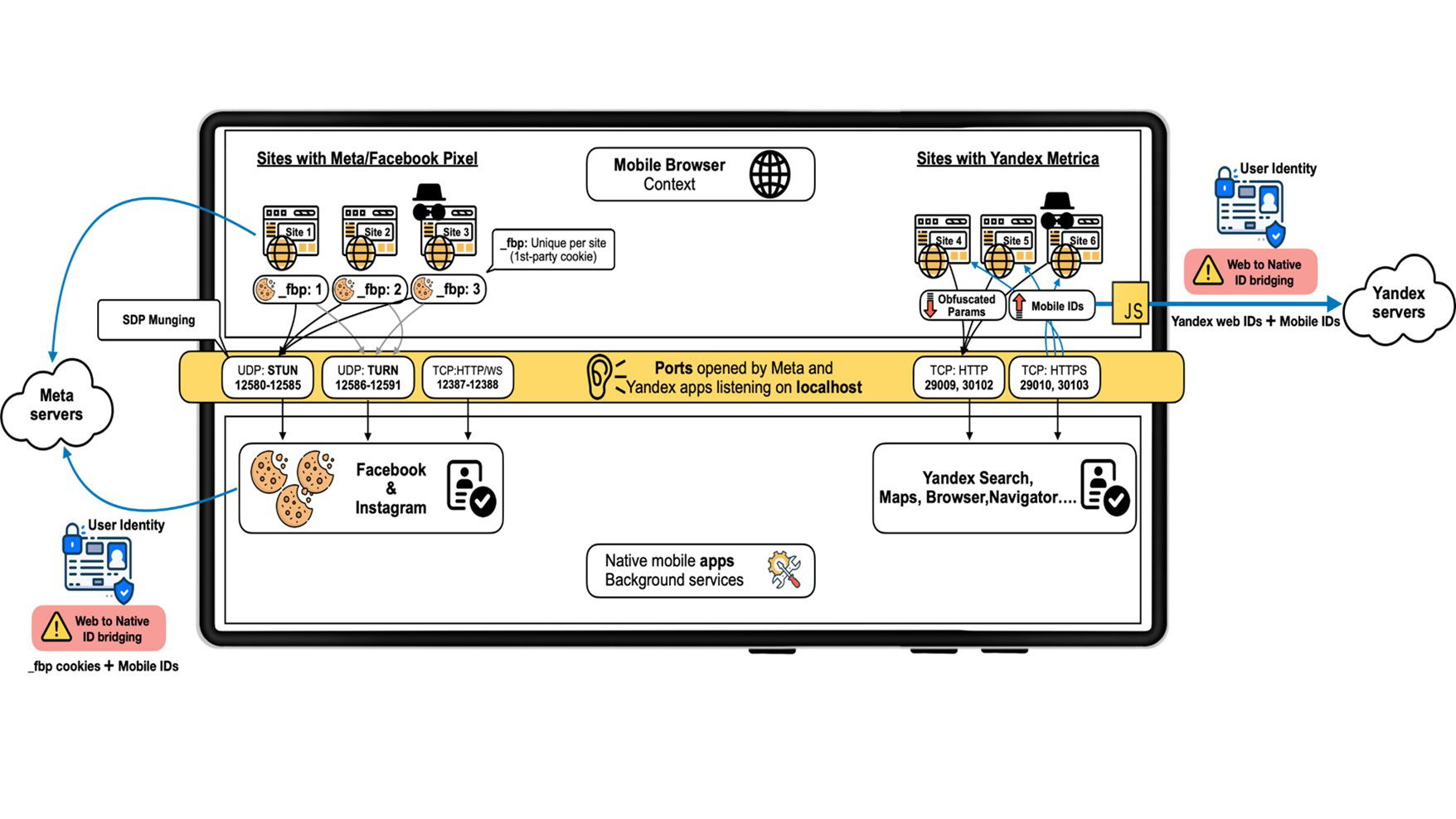Edgar Cervantes / Android Authority
TL;DR
- New analysis means that Meta and Yandex used a loophole in Android to hyperlink internet shopping knowledge to app identities.
- The strategy bypassed incognito mode, cookie clearing, and different privateness protections.
- Researchers say the one positive repair for now’s uninstalling the affected apps.
Replace: June 03, 2025 (4:30 PM ET): Because the publication of the story beneath, Yandex has contacted us and clarified its official place within the following assertion:
Yandex strictly complies with knowledge safety requirements and doesn’t de-anonymize consumer knowledge. The function in query doesn’t gather any delicate info and is solely supposed to enhance personalization inside our apps. Having reviewed the considerations, we’ve determined to discontinue its use and are within the strategy of eradicating the function from our functions. We’re additionally in communication with Google to make sure full compliance with their app retailer insurance policies.
Unique article: June 03, 2025 (12:05 PM ET): You’ve lengthy been reassured that utilizing incognito mode or clearing cookies in your Android gadget will assist forestall advertisers from monitoring your internet exercise. Nonetheless, new analysis exhibits that this might not be true, particularly when you’ve got sure well-liked apps put in.
As reported by Ars Technica and disclosed by researchers behind the Native Mess undertaking, each Meta and Russian tech large Yandex have been discovered to be utilizing strategies that permit internet shopping to be linked with app identities on Android. The researchers discovered that this monitoring methodology exploits the way in which Android permits browsers and apps to speak on the identical gadget.
The monitoring scripts concerned on this controversy are Meta Pixel and Yandex Metrica, that are embedded in tens of millions of internet sites. Whereas these instruments are supposed to assist website house owners measure engagement, the analysis exhibits they had been getting used to cross hidden messages from a browser to apps like Fb, Instagram, and Yandex Maps utilizing native community connections in your cellphone. If you happen to had been logged into any of these apps, they might choose up a singular ID out of your shopping session and hyperlink it to your account, even in incognito mode.
Meta started utilizing this system in late 2024, however Yandex has reportedly been doing so since 2017.
That’s a giant downside as a result of it circumvents most typical privateness protections. It doesn’t matter when you clear your cookies, keep away from logging into websites, or browse in non-public mode. So long as the related app is put in and quietly working within the background, the corporate can nonetheless study what web sites you’re visiting.
The loophole works by sending browser knowledge to localhost — an inside a part of your cellphone’s community setup that apps can entry. Android doesn’t notify customers or immediate for permission when this occurs.When a web site with Meta Pixel or Yandex Metrica hundreds, it could set off a connection to these apps by way of localhost, quietly sending knowledge alongside the way in which.
Meta started utilizing this system in late 2024, however Yandex has reportedly been doing so since 2017. Meta advised Ars Technica that it had paused the function and says it’s working with Google to resolve what it describes as a “potential miscommunication” over how the insurance policies ought to apply. Google said that the monitoring conduct violates Play Retailer insurance policies and Android customers’ privateness expectations, whereas Yandex hadn’t but responded to the publication’s request for remark on the time of writing.

Browsers like Courageous and DuckDuckGo already blocked a few of this conduct, and Google has began rolling out updates to Chrome that shut down the precise strategies used. However the researchers warning that these fixes are non permanent. Just a few tweaks to the code may get round them, until Android provides extra basic restrictions on how apps can entry native ports.
Meta Pixel and Yandex Metrica are widespread, showing on virtually six million and three million web sites, respectively. In response to the research, the overwhelming majority of web sites with these trackers start amassing this knowledge as quickly as you land on the web page, typically earlier than any consent pop-up seems.
If all this sounds invasive, that’s as a result of most individuals would agree that it’s. In response to the analysis workforce, the one surefire option to block this sort of Android monitoring proper now’s to uninstall the affected apps completely.

